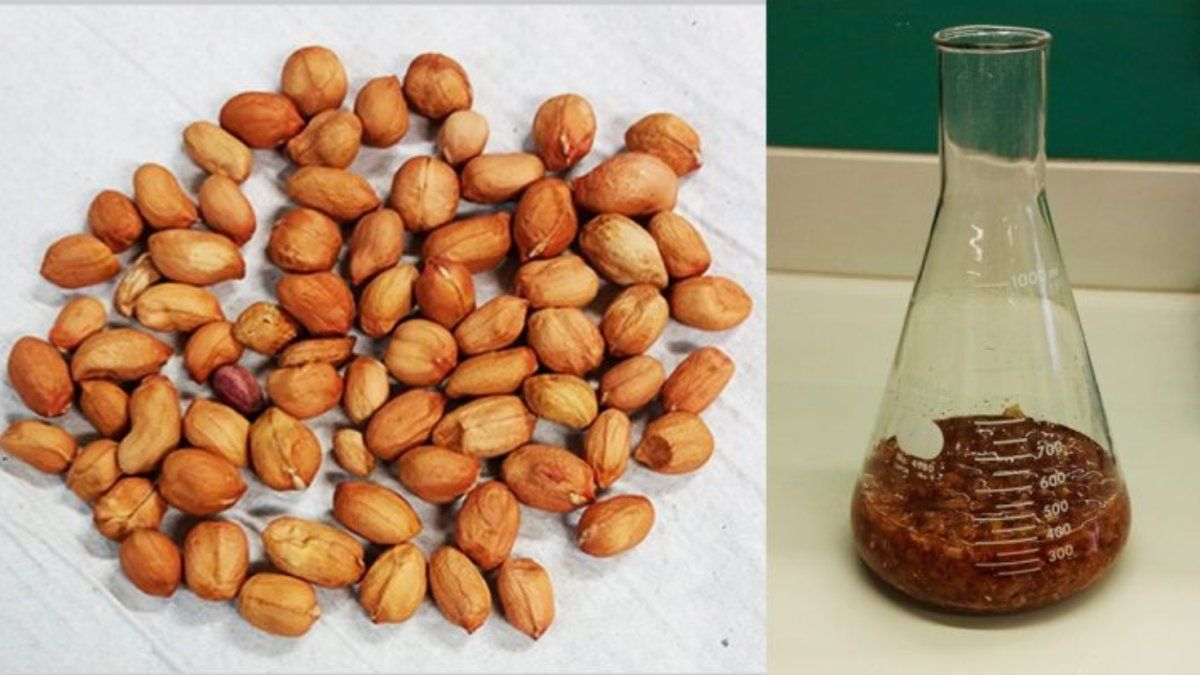An investigation carried out by scientists from the CONICET in a project sustainabilitymanaged to verify that an extract obtained from the red skinor integument, of peanutworks for inhibit dengue virus in its different stages.
“After an exhaustive literature review, we chose to investigate the peanut plant for its proven properties anti-inflammatory and antimicrobial. Furthermore, the province of Córdoba exports large quantities of this legume and its skin remains an industrial byproduct. Our study seeks the revaluation of that residue through obtaining a antiviral against the dengue virus, something that had not been tested before,” he highlighted Carola SabiniCONICET researcher and research leader.
The discovery was made by Health Sciences Research Institute (INICSA, CONICET-UNC) and the Institute of Environmental Biotechnology and Health (INBIAS, CONICET-UNRC), and the results were published in the journal plantswith the aim of developing treatments natural, sustainable and economical.
CONICET dengue mani (1).png
CONICET researchers and co-authors of the work, Carola Sabini and Elio Soria.
CONICET
He dengue is a viral disease emergent transmitted by the Aedes aegypti mosquitowhich has four main variants either serotypes: DENV-1, DENV-2, DENV-3 AND DENV-4. A complicated feature of this disease is that people who they get infected againsuffer an increased risk of contracting more serious symptoms and consequences.
The properties of the peanut plant to combat dengue
The researchers They found that the peanut plant stands out for having properties anti-inflammatory and antimicrobialand evaluated the extracts of peanut integument and seed on cells in vitro and with mice in vitro. The results revealed that they present polyphenols and proanthocyanidinsmolecules known for their properties antivirals and antioxidants.
“The seed extract had very little activity, since partially inhibited the virus in the intracellular stages of replication; while the integument extract, even in low concentrations, managed inactivate the virus one hundred percent. We believe that these effects are due to differences in the composition of each product. The seed has components lipid“explained the specialist.
In the different tests it was possible to demonstrate its effectiveness at different stages of the virus, the integument extract inhibits the DENV-2 in the different stages of its replication cycle, both in penetration and adsorption, and within the host cell.
The action of the extract is based on inhibit viral RNA synthesissomething that “is very important, because it implies that it can have different uses, as a treatment for infected people and as a preventive or prophylactic that prevent infection“said Sabini.
The objectives with nanotechnological developments
The team is looking to link up with sectors technological to advance in the production of different applicationssince in addition to its versatility and antiviral power, peanut seed extract has the advantages of natural products.
So that he phytopharmaceutical can be used in humans, scientists must test different formulations. “In collaboration with colleagues specializing in nanotechnologywe are developing small particles or vesicles that can stabilize and transport the different compounds of the extractso that they reach the places of interest,” he explained Elio SoriaCONICET researcher at INICSA and co-author of the work.
A fundamental part of the study is the investigation into the action that exerts the peanut extract in the immune systemsince in that sense, “it could be applied as a antiviral drug and, at the same time, immunomodulatorto avoid the inflammatory process of dengue,” Sabini added.
Source: Ambito




